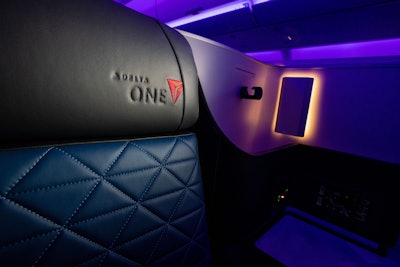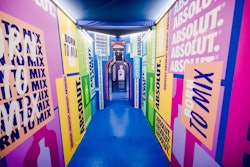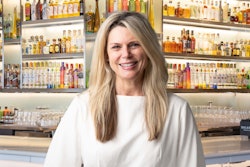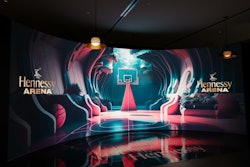
In an age when the typical economy-class cabin experience can be far from glamorous, upper-class service offers a glimpse back into the golden age of flying when indulgent hospitality made the journey a highlight of the trip.
Of course, those coveted seats in the front of the plane command a far higher price point than the cramped ones in the back. These guests’ expectations are high, and it’s the job of the airline and its cabin crew to deliver an impeccable experience that meets those expectations.
That’s also the task of event professionals: to deliver on, and ideally to exceed, expectations of seen-it-all attendees with crowded professional and social calendars. Here's what event profs can learn from the guest experience delivered in Delta One, the carrier’s most elite class of service.
1. Embrace the elements of surprise and delight.
Delta offers its elite flyers an over-the-top perk: the chance to be whisked out of the airplane door and straight to the tarmac below without ever stepping inside the airport—in a Porsche.
But this service isn’t uniformly available to all flyers in the upper-class cabin. Instead, it’s provided on a “surprise and delight” basis for the airline’s most loyal flyers, especially when they have tight connections that might otherwise cause stress.
So when a passenger steps into the jet bridge only to see a dedicated agent holding a sign bearing their name, ready to whisk them and their luggage down to a waiting Porsche on the tarmac, it’s a thrilling surprise.
Event producers can deploy this tactic through strategic reveals or other surprises that leave guests not only excited but practically reverberating with the brand’s message and ready to share their experiences on social media and beyond.
2. Use technology to streamline and elevate the experience.
As Delta’s partner at London’s Heathrow Airport, Virgin Atlanta’s lounge is accessible to Delta One customers. In the sprawling space, seating abounds for any type of weary traveler: bar seating, lounge groupings, dining tables, easy chairs with ottomans, and more. Located at each area is a placard bearing the message, “Scan for champagne (or anything else you fancy),” accompanied by a QR code.
Although the pandemic catapulted QR codes to wide popularity, the Virgin Atlantic lounge uses them in such a way as to streamline service both for guests and for staff alike: Each individual code connects specifically to the particular table on which it is placed, so guests are able to order food and drinks to their unique location within the expansive space. Not only does this approach reduce the load on staffers, but it amps up the convenience—not to mention the cool factor—of the guest experience.
 At London’s Heathrow Airport, Virgin Atlanta’s lounge is accessible to Delta One customers.Photo: Alesandra Dubin
At London’s Heathrow Airport, Virgin Atlanta’s lounge is accessible to Delta One customers.Photo: Alesandra Dubin
3. Create a sense of place.
Passengers flying in Delta One between London and major U.S. hubs can expect a light meal service that plays up their departure city: The pre-arrivals meal service draws from the tradition of British high tea, complete with tea sandwiches, scones, and clotted cream.
Event producers can (and should) also look toward local culture and traditions to inspire details of an event—from food and beverage to entertainment and activities—to give guests an experience of a place beyond the hotel ballroom.
This is especially important for organizers of meetings, conventions, and other events that require guests to travel. With the proliferation of hybrid and virtual events during the pandemic, it’s now ever more essential to demonstrate the value of traveling for a face-to-face program compared with participating in an equivalent virtual offering instead.
4. Nail the pacing.
Quality airplane meal service isn’t just a culinary operation but also a major logistical feat behind the scenes—just as it is at events. And the pace and timing of service are critical to the experience of passengers who have the expectation of comfort (as well as sleep or work) during the flight.
In Delta One, the cabin crew offers passengers a drink upon boarding and then prepares for meal service shortly after the flight takes off. Although regular snacks and bar service are available throughout the duration of a long-haul flight, passengers can generally expect to be left alone to sleep or to work for an unbroken stretch in the middle, until the pre-arrivals meal service. A cabin with lie-flat seats—and even suites with doors that close—allows for privacy and peace for sleep or business.
This meal-service pacing is well considered to provide a guest experience that advances flyers’ personal goals during the time they are interfacing with the brand. And event producers would be wise to similarly consider attendees’ own enjoyment or productive use of time at an event—rather than focusing on the brand messaging objectives in a vacuum.
After all, if a guest has a bad experience—if it takes 45 minutes to retrieve their car from the valet, or the hors d’oeuvres only come out after everyone’s starving—that’s all they’ll remember from their experience with the brand. A guest-focused run of show makes all the difference.
 A cabin with lie-flat seats—and even suites with doors that close—allows for privacy and peace for sleep or business.Photo: Courtesy of Delta Airlines
A cabin with lie-flat seats—and even suites with doors that close—allows for privacy and peace for sleep or business.Photo: Courtesy of Delta Airlines
Upon boarding, passengers in Delta One have a free moment to get situated before the purser comes over to make a personal introduction, referring to the passenger by name, delivering the menu, and confirming any dietary restrictions or food preferences.
It’s this personal touch that makes each guest feel warmly welcomed and acknowledged, and it provides an opportunity to associate the brand with positive and individualized experiences.
That’s the goal of event producers, too: to cut through the clutter and make a personal, enduring, and authentic connection with each guest in attendance.



















